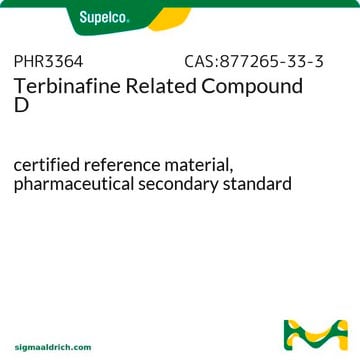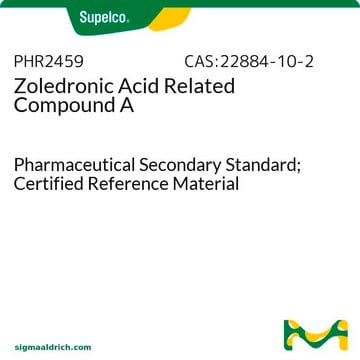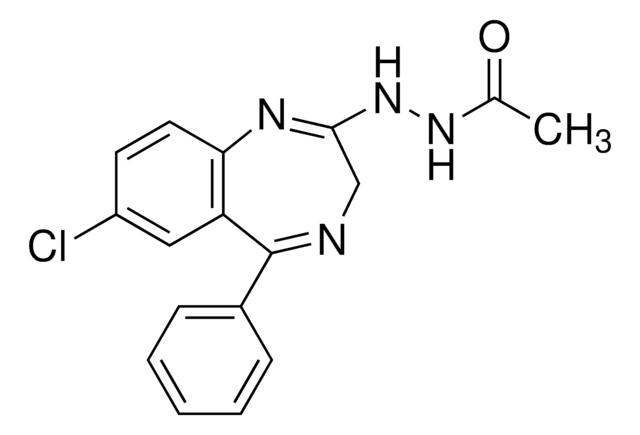1303002
USP
Haloperidol
United States Pharmacopeia (USP) Reference Standard
Synonym(s):
4-[4-(4-Chlorophenyl)-4-hydroxy-1-piperidinyl]-1-(4-fluorophenyl)-1-butanone, 4-[4-(4-Chlorophenyl)-4-hydroxypiperidino]-4′-fluorobutyrophenone, 4-[4-(p-Chlorophenyl)-4-hydroxypiperidino]-4′-fluorobutyrophenone
About This Item
Recommended Products
grade
pharmaceutical primary standard
API family
haloperidol
manufacturer/tradename
USP
application(s)
pharmaceutical (small molecule)
format
neat
SMILES string
OC1(CCN(CCCC(=O)c2ccc(F)cc2)CC1)c3ccc(Cl)cc3
InChI
1S/C21H23ClFNO2/c22-18-7-5-17(6-8-18)21(26)11-14-24(15-12-21)13-1-2-20(25)16-3-9-19(23)10-4-16/h3-10,26H,1-2,11-15H2
InChI key
LNEPOXFFQSENCJ-UHFFFAOYSA-N
Gene Information
human ... HTR2A(3356)
Looking for similar products? Visit Product Comparison Guide
General description
Application
- Cisapride
- Haloperidol
- Haloperidol Injection
- Haloperidol Oral Solution
- Haloperidol Tablets
Analysis Note
Other Notes
related product
Signal Word
Danger
Hazard Statements
Precautionary Statements
Hazard Classifications
Acute Tox. 3 Oral - Eye Irrit. 2 - Repr. 2 - Skin Irrit. 2 - Skin Sens. 1 - STOT SE 3
Target Organs
Respiratory system
Storage Class Code
6.1C - Combustible acute toxic Cat.3 / toxic compounds or compounds which causing chronic effects
WGK
WGK 3
Flash Point(F)
Not applicable
Flash Point(C)
Not applicable
Certificates of Analysis (COA)
Search for Certificates of Analysis (COA) by entering the products Lot/Batch Number. Lot and Batch Numbers can be found on a product’s label following the words ‘Lot’ or ‘Batch’.
Already Own This Product?
Find documentation for the products that you have recently purchased in the Document Library.
Customers Also Viewed
Our team of scientists has experience in all areas of research including Life Science, Material Science, Chemical Synthesis, Chromatography, Analytical and many others.
Contact Technical Service








